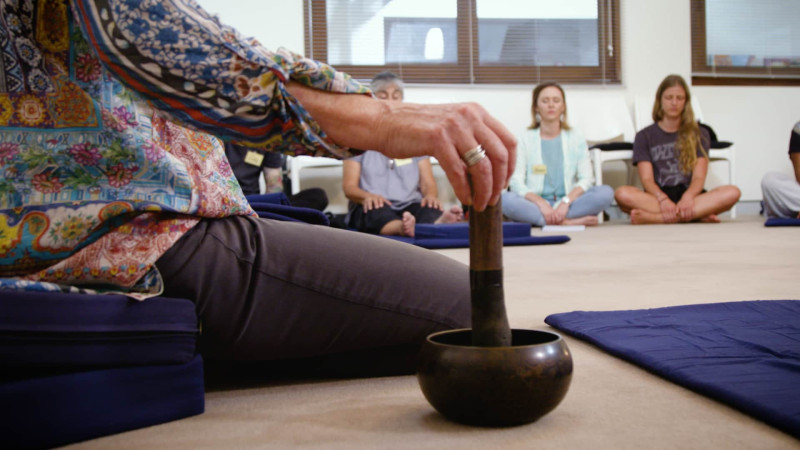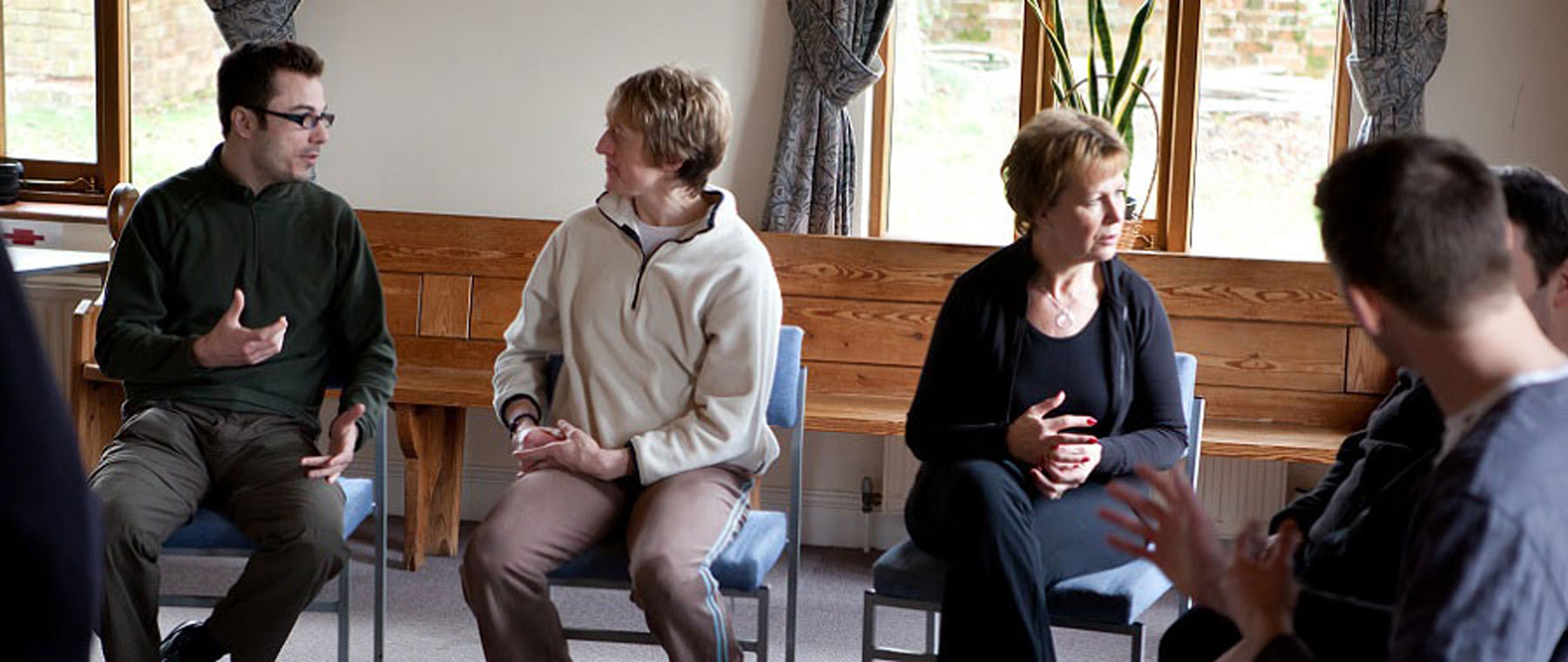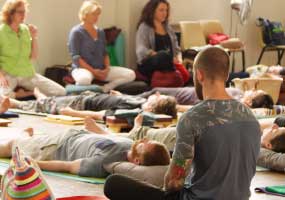Mindfulness-Based Stress Reduction (MBSR)
An evidence-based mindfulness course to reduce stress and build resilience, and live with more presence
View Upcoming MBSR Courses
Meet Our Teachers
Read FAQs
Developed by Dr. Jon Kabat-Zinn, Mindfulness-Based Stress Reduction (MBSR) is one of the most well-researched and respected mindfulness programs in the world. Over 8 weeks, this course helps you relate differently to stress, uncertainty, and the challenges of everyday life — while also deepening your sense of meaning, connection, and personal growth.
Whether you're feeling overwhelmed, navigating a transition, or simply curious about mindfulness and wellbeing, MBSR offers a practical, compassionate, and powerful approach to living more fully.
Is MBSR for you?
This mindfulness course is ideal if you:
- Want to reduce stress, anxiety, or emotional reactivity
- Are managing chronic pain, illness, or burnout
- Feel stuck on autopilot and want to live more intentionally
- Seek a deeper sense of clarity, calm, and connection
- Are curious about meditation and personal growth in an evidence-based way
- Work in a helping profession and want to bring more mindfulness into your life and work
No experience with mindfulness is necessary — just an open mind and a willingness to explore.
What you'll learn in the MBSR course
Through guided meditation, mindful movement, group dialogue, and real-life reflection, you’ll learn how to:
- Stay grounded in the present moment, especially under stress
- Notice automatic patterns and respond with more awareness and choice
- Build inner resilience, compassion, and emotional regulation
- Shift from reactivity to calm, courage, and kindness
- Discover a steadier, more spacious way of being — in everyday life
More than stress relief - it's about waking up to your life
This 8-week mindfulness training is more than just a way to feel better — it's an invitation to live with greater presence, purpose, and possibility. You’ll learn to meet your experience — pleasant or difficult — with steadiness and care, and reconnect with what really matters to you.
Course structure
- 🧘♀️ Eight weekly sessions (2.5 hours each)
- 🌿 One full-day silent retreat to deepen your mindfulness practice
- 🎧 Guided meditations and home practice support
- 🤝 Small-group format with experienced, trauma-informed teachers
- 📚 Rooted in mindfulness, neuroscience, and psychology
This program is offered online and in-person — check our course schedule for options.
Join us if you're ready to:
- Get out of autopilot and reconnect with your life
- Cultivate presence and compassion — even during challenges
- Build sustainable tools for stress, anxiety, and emotional regulation
- Learn to live with more ease, depth, and clarity
Whether you're seeking relief or seeking more from life, Mindfulness-Based Stress Reduction offers a proven and empowering foundation for wellbeing.
Choose What You Pay – Support Yourself & Others
Our pricing is designed to balance generosity and accessibility. Please choose the amount that best fits your situation, knowing that every contribution helps sustain our mission. If you have some financial security: that is a job, some assets (savings, shares, property) and/or superannuation income we ask you to pay your way (with a payment plan if needed).
💛 Pay It Forward – $795
I'm in a position to give more and want to help others access this experience.
💙 Standard Rate – $695
Covers the true cost of the program—thank you for your support!
💚 Discounted Rate – $495
I need some support, but I’m happy to contribute what I can.
💜 Supported Rate – $295
I could use a little extra help right now—grateful for this opportunity.
No one is turned away for lack of funds. If you need further assistance, reach out to us!



 Through the cultivation of skills, attitudes and knowledge MBSR offers a tested approach to develop and quicken our innate human capacities for attention, awareness and wise action.
Through the cultivation of skills, attitudes and knowledge MBSR offers a tested approach to develop and quicken our innate human capacities for attention, awareness and wise action. 




 Grad. Dip. Sustainability Studies,
Grad. Dip. Sustainability Studies, BEc, LLB, Dip. Som. Psych. PACFA Reg. IFS Level II
BEc, LLB, Dip. Som. Psych. PACFA Reg. IFS Level II

 BA (Hons) Psychology, Registered Psychologist, Postgrad Cert Clinical Psychology; Level 1 IFS, MBSR/MBCT (MTIA), Dip Remedial Massage
BA (Hons) Psychology, Registered Psychologist, Postgrad Cert Clinical Psychology; Level 1 IFS, MBSR/MBCT (MTIA), Dip Remedial Massage BA Social Work, IFS Level 1, MBSR/MBCT (MTIA), Advanced Dip Yoga Teaching (AYA), Cert Yoga Therapy (AAYT), Cert Interpersonal Psychotherapy, Cert MI, Cert IREST, Member AASW.
BA Social Work, IFS Level 1, MBSR/MBCT (MTIA), Advanced Dip Yoga Teaching (AYA), Cert Yoga Therapy (AAYT), Cert Interpersonal Psychotherapy, Cert MI, Cert IREST, Member AASW.  BA Social Work, BFA, MFA, AASW registered, Mindfulness-Based Stress Reduction Facilitator
BA Social Work, BFA, MFA, AASW registered, Mindfulness-Based Stress Reduction Facilitator B.A. (Bus), Dip. Counselling, Australian Counselling Association, Internal Family Systems, Somatic Experiencing, Sensorimotor Psychotherapy
B.A. (Bus), Dip. Counselling, Australian Counselling Association, Internal Family Systems, Somatic Experiencing, Sensorimotor Psychotherapy BMusEd (hons), MBSR facilitator
BMusEd (hons), MBSR facilitator